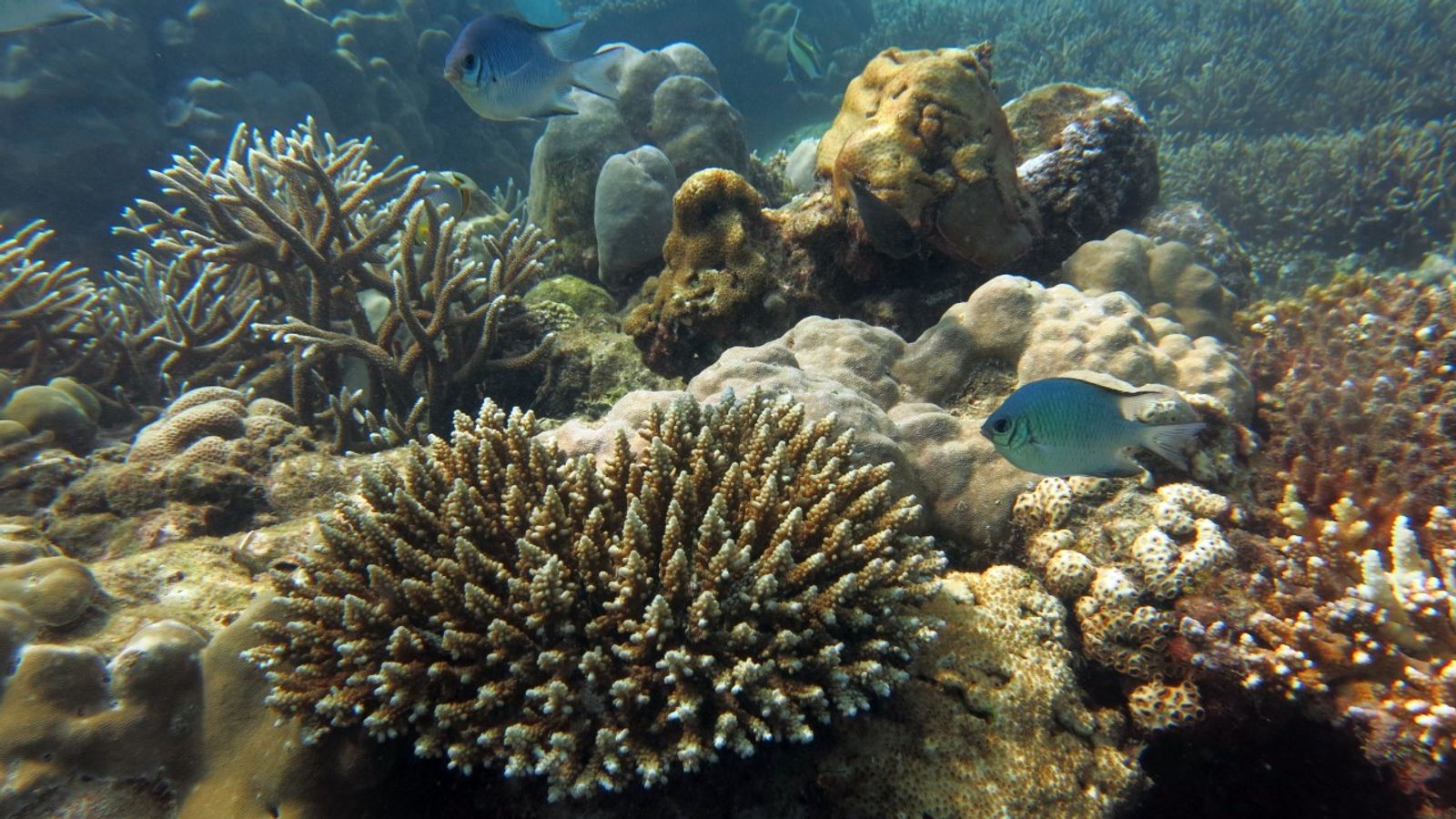Bleached and damaged coral reefs are still able to supply nutritious seafood, a study has found.
Scientists led by Lancaster University used more than 20 years of data from the Seychelles, where tropical reefs were damaged by a large coral bleaching event in 1998.
The bleaching, caused by rising sea temperatures, killed 90% of the corals found on the islands.
Hope for millions of people
Bleaching turns the corals white, and leaves them under stress and at risk of death.
Scientists were unsure how climate change could affect the nutrients available from reef fisheries.
But the new findings reveal they may be more resilient than previously thought.
Climate change: Find out the energy efficiency of homes in your area – as most important factor revealed
Climate change: Scientists embark on two-month mission to explore ‘doomsday’ Thwaites Glacier
Cautious welcome for ‘globally significant’ plans to pay farmers to adopt climate-friendly practices
The research, published in One Earth, finds damaged reef fisheries remain rich sources of micronutrients, even increasing in nutritional value for some minerals.
This will bring hope to more than six million people who work in the small-scale fisheries and rely on tropical reefs.
The fish they catch are vital to the health of millions of people in the tropics, which suffer from high levels of malnourishment.
Coral bleaching becoming more severe
Global warming means coral bleaching events are becoming more frequent and more severe, placing these vulnerable ecosystems under greater stress.
Dr James Robinson, who led the study, said the findings “underline the continuing importance of these fisheries for vulnerable coastal communities, and the need to protect against overfishing to ensure long-term sustainability of reef fisheries”.
“We found that some micronutrient-rich reef species become more abundant after coral bleaching, enabling fisheries to supply nutritious food despite climate change impacts,” he added, and called for the protection of these systems to be made a “priority”.
The researchers caution that more understanding of the long-term impacts of climate change on coral reefs is still urgently needed.
Subscribe to ClimateCast on Spotify, Apple Podcasts, or Spreaker
The scientists, who came from the Seychelles, Australia, Canada, and Mozambique, calculated that reef fish are important sources of selenium and zinc, and contain levels of calcium, iron, and omega-3 fatty acids comparable to foods like chicken and pork.
Iron and zinc were found to be more concentrated in fish caught on reefs dominated by microalgae and seaweeds.
Co-author Professor Christina Hicks said the study “suggests reef fisheries will continue to play a crucial role, even in the face of climate change, and highlights the vital importance of investing in sustainable fisheries management”.
The researchers believe the results underline the need for more of the catches to be retained for locals and promotion of traditional fish-based diets.
They used a combination of experimental fishing, nutrient analysis, and visual surveys of fish communities to inform the study.
Watch the Daily Climate Show at 8.30pm Monday to Friday on Sky News, the Sky News website and app, on YouTube and Twitter.
The show investigates how global warming is changing our landscape and highlights solutions to the crisis.






















